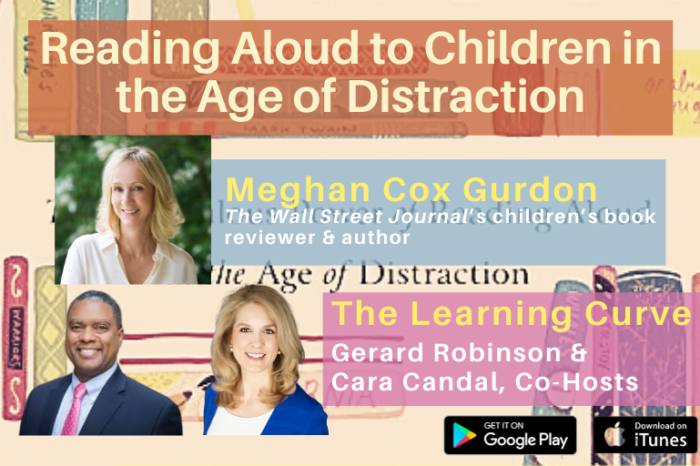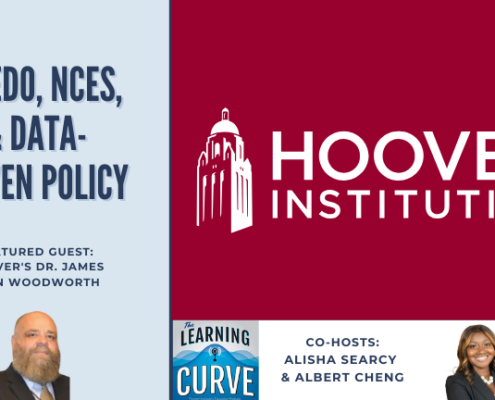WSJ Children’s Book Critic & Author, Meghan Cox Gurdon on Reading Aloud to Children in the Age of Distraction
This week on “The Learning Curve,” Cara and Gerard are joined by Meghan Cox Gurdon, the Wall Street Journal’s children’s book reviewer and author of The Enchanted Hour: The Miraculous Power of Reading Aloud in the Age of Distraction. Meghan shares what inspired her interest in becoming a children’s book critic, after having been a foreign correspondent. She discusses her ideas about the importance of spending time reading aloud, and the impact of the heavy use of technology on children’s literacy. She delves into the “Goldilocks effect,” a concept from cognitive science and developmental psychology mentioned in her book, and describes the brain research behind the value of reading aloud with young children. They also explore how reading aloud helps close the vocabulary and general-knowledge gap, especially among struggling students, as well as its importance for kids in the middle and high school years. Lastly, she shares her views on how to evaluate the quality of children’s books.
Stories of the Week: As the school reopening debate continues, a new poll of American parents found that 71 percent view sending their kids back to school as a large or moderate risk to their own health. How much of a role do schools play in spreading the virus? A German study of 1,500 students and 500 teachers yields surprising results.
Guest:
 Meghan Cox Gurdon is a widely published essayist, book critic, and former foreign correspondent who has been the Wall Street Journal’s children’s book reviewer since 2005. She’s the author of The Enchanted Hour: The Miraculous Power of Reading Aloud in the Age of Distraction. Meghan graduated magna cum laude from Bowdoin College. She and her husband have five children and live in Maryland.
Meghan Cox Gurdon is a widely published essayist, book critic, and former foreign correspondent who has been the Wall Street Journal’s children’s book reviewer since 2005. She’s the author of The Enchanted Hour: The Miraculous Power of Reading Aloud in the Age of Distraction. Meghan graduated magna cum laude from Bowdoin College. She and her husband have five children and live in Maryland.
The next episode will air on July 24th, 2020 with Dr. Sephira Shuttlesworth, a retired teacher and charter school leader, and the widow of the late Birmingham, Alabama, civil rights leader, the Rev. Fred Shuttlesworth.
Tweet of the Week:
BOOOOOOM! "If we really want to reform America’s racist system of public education, we should start by empowering Black families with the freedom and resources to choose." https://t.co/7ZbDS23jz6
— Matthew Ladner (@matthewladner) July 15, 2020
Newslinks:
Poll: 7 in 10 parents say sending kids to school a risk
German study shows low coronavirus infection rate in schools
Get Updates on Our Education Research
Recent Episodes















